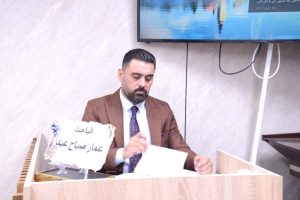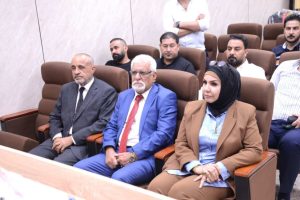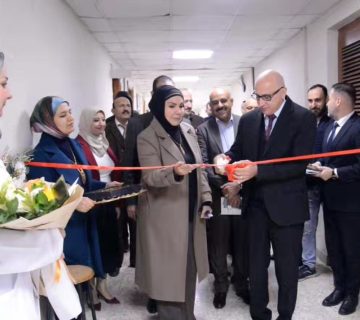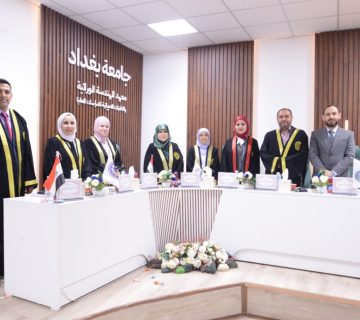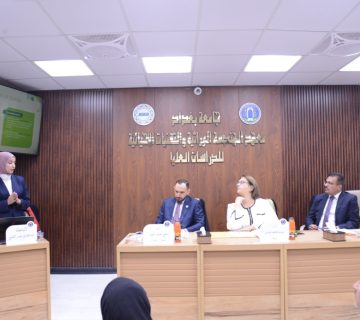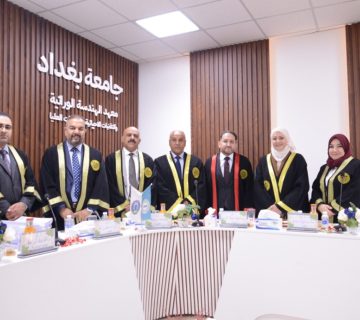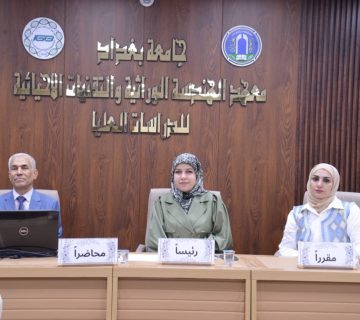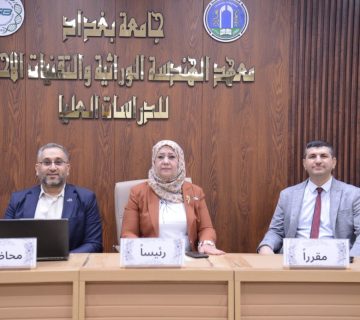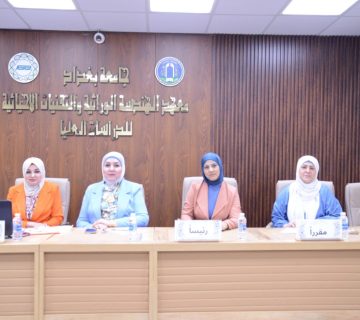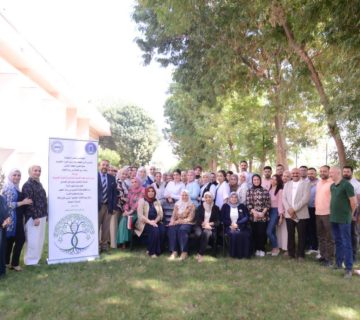The Institute of Genetic Engineering and Biotechnology for Postgraduate Studies/University of Baghdad discussed the master’s thesis of the student “Ammar Sabah Abdul” entitled: “The relationship between the gene expression of HSPA2 and AR genes in semen and the level of interleukin IL37 and IL18 in blood serum in men with varicocele” in the discussion hall at the institute. The master’s thesis aimed to study the immune factors and gene expression results, and their associations with patients with varicocele oligospermia and non-varicocele oligospermia compared to healthy people, which provides insight into the molecular mechanisms underlying male infertility. During the study, patients with confirmed oligospermia due to varicocele (40 samples) and oligospermia without varicocele (40 samples) were diagnosed, in addition to 40 apparently healthy males as a control group. Semen analysis revealed a significant decrease (p < 0.001) in sperm concentration, total sperm count and progressive motile sperm in varicocele patients and oligospermia patients without varicocele compared to the control group. The percentage of non-motile sperm was significantly higher (p < 0.001) in the patient groups compared to the control group. No statistically significant differences were recorded in ejaculate volume and non-progressive motile sperm. The results showed that the level of IL-18 in plasma percentage of varicocele patients and oligospermia patients without varicocele was (5708 pm834,6175 pm831,4867 pm919 pg/mL) compared to the control group, respectively. The study found that the level of anti-sperm antibodies (ASAbs) was significantly higher (P < 0.001) in varicocele patients compared to the other groups. The gene expression of androgen receptor (AR) and heat shock protein (HSPA2) in varicocele patients was detected using reverse transcriptase polymerase chain reaction (RT-PCR).
Related Posts
Comments are disabled.


